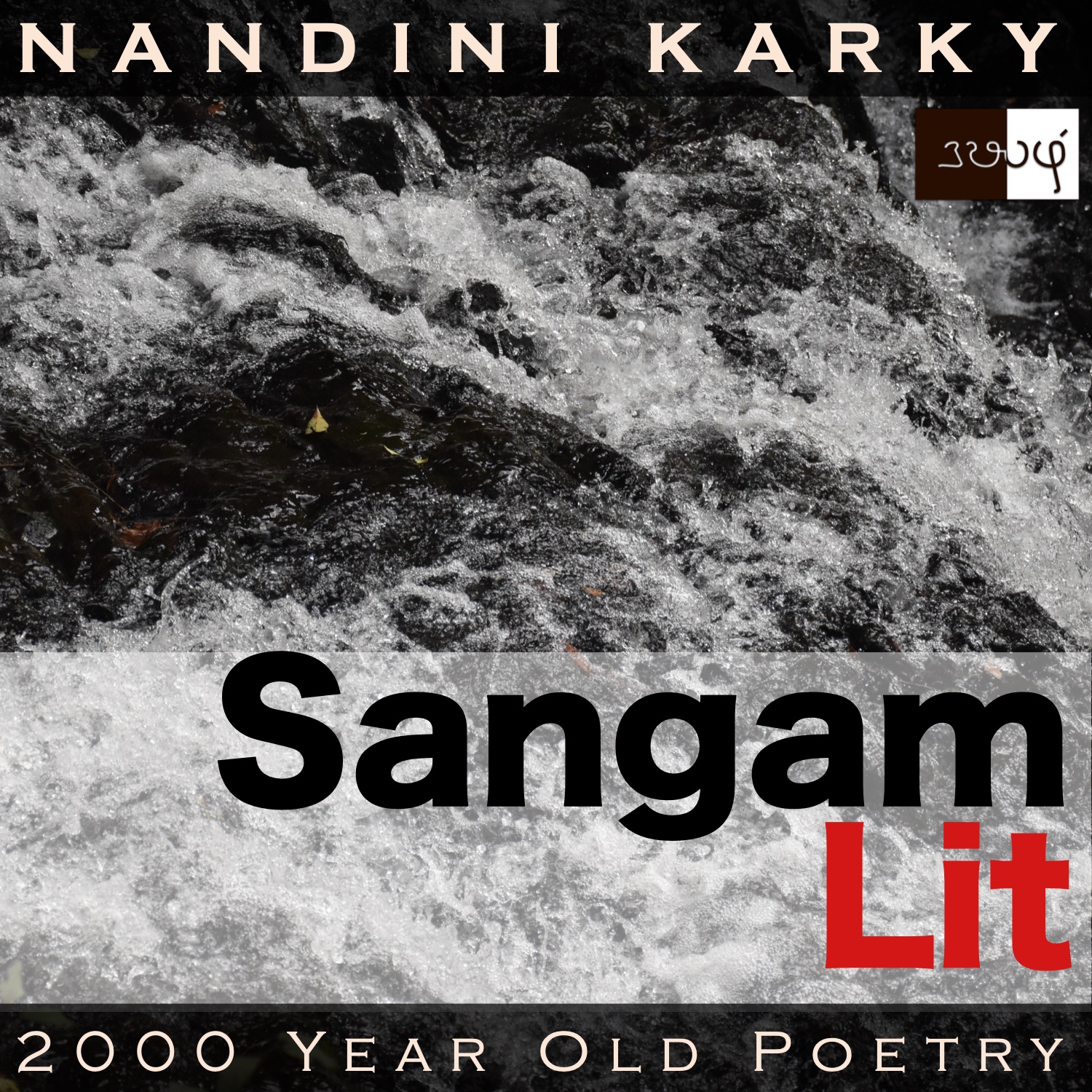Podcast: Play in new window | Download
Subscribe: Apple Podcasts | Spotify | Amazon Music | Android | iHeartRadio | TuneIn | RSS | More

In this episode, we perceive the importance accorded to a woman’s shyness, as portrayed in Sangam Literary work, Kurunthogai 149, penned by Velli Veethiyaar. The verse is situated in the drylands of ‘Paalai’ and speaks in the voice of the lady to her confidante, on hearing that the lady had to elope away with the man.
அளிதோ தானே-நாணே நம்மொடு
நனி நீடு உழந்தன்று மன்னே; இனியே,
வான் பூங் கரும்பின் ஓங்கு மணற் சிறு சிறை
தீம் புனல் நெரிதர வீந்து உக்காஅங்கு,
தாங்கும் அளவைத் தாங்கி,
காமம் நெரிதரக் கைந் நில்லாதே.
It’s a tale of the fall of shyness here! In the opening words ‘அளிதோ தானே’ meaning ‘Indeed, it is to be pitied’, the verse expresses sympathy towards something. What that something is, gets revealed in the next word – ‘நாணே’. Although this word can be translated as ‘shyness’, it does not quite capture the Tamil meaning of this word ‘நாணம்’, which is a mixture of diffidence, humility and even shame that was expected and present in a Tamil woman in Sangam times, or so says the literature. From these abstract emotions, the verse turns to ‘வான் பூங் கரும்பு’ or ‘sugarcane with white flowers’. The phrase ‘ஓங்கு மணற் சிறு சிறை’ meaning ‘a small, elevated bank of mud’ shows us the setting of these crops. Next, we glimpse at ‘தீம் புனல்’ meaning ‘a sweet flood’ and, what captures my attention is the usage of the adjective ‘sweet’ to characterise a fierce flood. Ending with the words ‘காமம் நெரிதரக் கைந் நில்லாதே’ meaning ‘as love envelopes, it cannot remain firm’, the verse welcomes us to explore more.
Sweet floods and sugarcane seem to hold a calorie-rich meal of emotions. The context reveals that the man and lady were leading a love relationship when the man realised that the only way to protect their relationship was for the lady to elope with him to his village. He seeks the confidante’s help to realise this and the confidante, deciding to help him, insists to the lady that she must leave with the man. To the confidante, the lady says, “Isn’t it pitiable? This shyness was suffering for long in me. Akin to how the white-flowered sugarcane’s elevated mound of mud is broken by the sweet flood’s swell, it has borne what it could this far, and now, as love swells, it cannot remain with me any longer.” With these words, the lady conveys her acceptance to leave with the man in an indirect manner while lamenting the loss of her shyness.
There was only talk of floods and sugarcane and within these few words, how does the lady convey her response to the confidante then? Let’s listen closely to find out. The lady starts with a rhetorical question to her confidante, asking wasn’t that a sad state? She clarifies what she is talking about when she mentions her shyness, something which has been suffering in her for long. Then, she talks about a field of sugarcane and its white flowers. We have never seen the white flowers because today’s farmers make it a point to cut the sugarcane before the crop flowers, but this was an ancient time, perhaps when interests were not so commercial, and they seemed to have seen sugarcane with flowers. The lady is talking about the field of sugarcane only to describe the small bank of mud raised around where these stand. Then she goes on to say how that raised mound falls to the attack of a flood. This scene she equates to how her shyness tried to fight and stand as long as it could, but now, it falls, because love calls!
Bowing to the pressure of passion that calls to her, the lady decides this is no time to be demure. Only if she leaves with the man, then she can be assured of a happy life with him. Here we see her taking a moment to appreciate that quality of shyness that stood so long with her and sees that now it’s farewell time. Returning to that simile of a bank of mud around a sugarcane field, we will know how apt this is, when we understand that sugarcane is a water intensive crop and its yields will utterly fail if it does not get sufficient water. So, these crops are planted along fertile streams with the protection of embankments. But, if you are by a stream, you cannot control its flow and when the river swells, the water will indeed flood those protective embankments and these will succumb to the force of that flood. Recollect how this flood was called as ‘sweet flood’ and now the adjective makes sense because of its connection to the flood of love that erodes the lady’s shyness. A poignant thought that no matter what shields we raise, we cannot fully control or stop the flow of nature, and like the lady in the verse, at times, we must learn to let it be!




உணர்ச்சிகளின் உணவு! ஆஹா, எவ்வளவு ருசியான தொடர்!